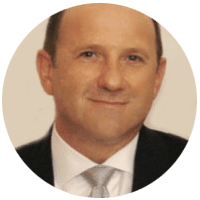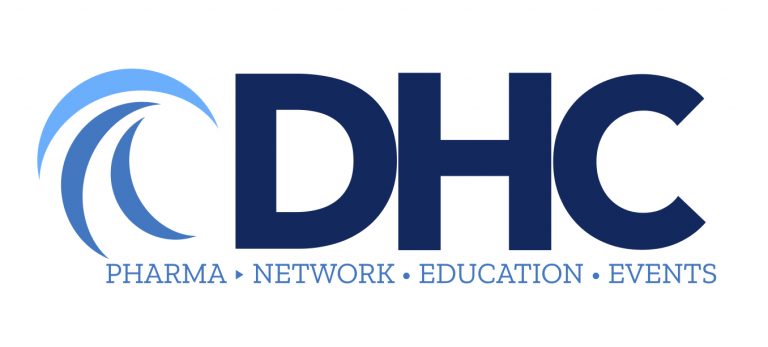Interview: Biggest Impact on Pharma Today - June 2020
With Mark Bard and David Davidovic


Impact on Pharma Today
A 9 minute watch. This video is a summary of a conversation centered around digital transformation between the DHC’s Founder Mark Bard and David Davidovic, Founder of pathForward and member of the DHC Advisory Board. David shares insights on how the current COVID-19 environment has made an impact on the pharma industry so far.
Watch the video or read the transcript below for David’s perspective on potential outcomes of a rapid shift to a digital first world.
Watch the video or read the transcript below for David’s perspective on potential outcomes of a rapid shift to a digital first world.
Video Transcript
Mark Bard: Welcome, my name is Mark Bard with The DHC Group. Today we have David Davidovic, who’s been a wonderful friend of The DHC over the years, significant experience in the industry across multiple firms, most recently, spending time with Genentech, currently out in the San Francisco Bay area. What we’d like to do today as we talk about COVID-19 and this current environment is if you had to sum up the biggest impact on pharma today in the current quarter, what would you describe that biggest impact as?
David Davidovic: Mark, good morning. Thank you very much for having me here. Very pleased to partner with the DHC. The work you’re doing is amazing, especially in this time with digital becoming so prominent in everything we do, and in many cases, become the lifeline for individuals and for companies.
With respect to the single biggest change in the industry, there isn’t any one specific change. What is fascinating is that companies in this industry, like in others, are revisiting everything they do from the very minutiae all the way obviously to large broad long-term strategies. How do we operate in this market? What are our priorities? What capabilities do we have? What are people strategies? You name it. It’s a real wake-up call.
Disruption is costly and not always pleasant, but I think many companies, and especially the patients they serve, are going to be better off. Hopefully, we can chat a little bit more about those changes and what the future holds.
All of us in the industry have been spending a lot of time and resources over many years in trying to help patient grow their awareness of their own conditions. We always felt that if patients were more educated about their healthcare, they would be in a better position to do something about it, act on it, and of course, result in better outcomes.
In this environment, we are seeing a heightened level of health-consciousness that bodes well for future improvements in health literacy. Now, in some ways, it’s scary because we’re so worries about the virus and its consequences, but this also heightens our awareness of our surroundings, awareness of what risk means, awareness of what we can do about it, and enhances the conversation on what actions we can take.
Another element is what I call the end of pilotitis in digital marketing. For 15 or 20 years now, the industry has been doing a lot of digital projects around the edges with spotty results. Now, we have this accelerated digital transformation that has a chance of finally realizing the promise and opportunities. But I hope we go beyond simply implementing all the things that we’ve been talking about for the last 15 years because it’s a new world. A lot of strategies that I have seen and implemented across the industry on digital happen supplemental. Perhaps, we’re getting a world that its really digital first and brings even more innovations for a better patient experience.
Let’s see what happens with agility, not the agile methodology, but agility in terms of being able to make decisions faster. That is going to be a big change. Think about the decisions that companies have been making in the last two months. Sometimes in one call, they made a decision to do something in an hour, what before that took months and years and took a lot of effort to get anyone’s attention. People have been making to make those decisions fast. I’m hoping that those are going to sustain. That learning gives us a confidence that we can actually make those decisions with confidence and move quickly and we’ll have a new way of working that sticks.
The ability to try things quickly is the other part of this. It’s a big part of agile, of course, and as a methodology to actually try and learn from it, adjust, evolve, change, and keep doing it with or without the current situation. That’s something some companies already were trying to do, but even in those efforts Agile processes were getting over-engineered. I think now we’re going to have a new world that’s really going to be spot on. Faster decisions and more agile agile.
Another piece is this area of interoperability. It’s a big word. It’s a mouthful for me. That’s in the world of electronic health records.
Healthcare has been hampered. The data that physicians have that specialists will have a completely different system than primary care physician, and the hospital, and the – and so on forth. The data is very – it’s really not conducive for sharing and being able to get a full care of the patient. Clearly, in this environment, we are learning is that it’s necessary to share to have a full view of the patient.
The arguments for stopping these efforts to cooperate across systems are going out the window. That’s going to be from an industry point of view richer data. We’re going to have many opportunities to have full view of the patient whether it’s medical affairs looking or data for real-world evidence generation, whether it’s on the commercial side in terms of to fully understand that patient journey and what patients are going through in their different touchpoints, and the complete patient in terms of moving forward with therapy or treatment strategies.
I’m optimistic from a couple of angles. One, of course, is the ability to do it, which is what the technology and interoperability helps us. Without it, all of the wishful thinking in the world is not going to get us there. There has been, of course, the trust hole that pharma has been in for all these years. I think we’re right now at a unique opportunity for pharma to I’m not sure come out of it, but come in a place that we need that truly shows the advances that we can make, the contributions to healthcare we can make, and that as a team together with healthcare providers, we can – it can result in better outcomes.
One last item that I mentioned that I’ve been thinking about, it’s actually a big concern and has some implications, what I call digital congestion. If we go back to the ‘80s, ‘90s, when from a salesforce point of view, we had salesforce congestions. There were companies with five, six, seven, eight reps up competing against each other, multiple companies, so many representatives in the field. I think at some point, the count was 100,000. I can’t remember the exact number, but not far from that. It created such congestion that in fact, offices started shutting us down, put all kinds of restrictions, no time available. Everything became much more difficult.
I’m a little bit worried that we’re into that world right now with digital congestion. There’s so much going on. It’s so easy to do it. Everybody can do it very quickly, do it tomorrow. You can launch a product in one day and reach more audience members or more physicians than ever before. The concern there is that everybody can do it and everybody is doing it.
What will it take for you to stand out with physicians, with pharmacies, with whatever your customer base is? They’re going to probably get a little bit overburdened with this – these questions or this request for time. How do we break through that noise will be really interesting.
First of all, we need to respect the customer’s wishes, time, and needs. That’s the worst thing we can do is just push something they absolutely don’t want. Now, they may not realize that this may be a time-saver they may actually get good information from as it’s set up, but we do need to respect what their wishes are.
That hasn’t changed. What I worry a little bit is that a lot of that junk from a digital – on the digital channel side is going to be the same old materials, stale materials that were produced six months ago, and everybody’s seen them many times, no new data and so on. The other piece, and if we’re talking about digital sales presentations, the skills to do that are going to be – need to be developed. I’m not sure everybody can. It’s a completely different skill.
It’s not translating what I did in the office, except now I’m doing it on video; it’s a lot more than that. That will be an interesting one to see which companies do this really well, elevating those skills, hiring for those skills, and delivering on them. If all these things come together in terms of again respect, constant flow of useful, new information, and doing it with the right skills, I think we will break through that cloud or this digital congestion setting that we’re in.
With respect to the single biggest change in the industry, there isn’t any one specific change. What is fascinating is that companies in this industry, like in others, are revisiting everything they do from the very minutiae all the way obviously to large broad long-term strategies. How do we operate in this market? What are our priorities? What capabilities do we have? What are people strategies? You name it. It’s a real wake-up call.
Disruption is costly and not always pleasant, but I think many companies, and especially the patients they serve, are going to be better off. Hopefully, we can chat a little bit more about those changes and what the future holds.
All of us in the industry have been spending a lot of time and resources over many years in trying to help patient grow their awareness of their own conditions. We always felt that if patients were more educated about their healthcare, they would be in a better position to do something about it, act on it, and of course, result in better outcomes.
In this environment, we are seeing a heightened level of health-consciousness that bodes well for future improvements in health literacy. Now, in some ways, it’s scary because we’re so worries about the virus and its consequences, but this also heightens our awareness of our surroundings, awareness of what risk means, awareness of what we can do about it, and enhances the conversation on what actions we can take.
Another element is what I call the end of pilotitis in digital marketing. For 15 or 20 years now, the industry has been doing a lot of digital projects around the edges with spotty results. Now, we have this accelerated digital transformation that has a chance of finally realizing the promise and opportunities. But I hope we go beyond simply implementing all the things that we’ve been talking about for the last 15 years because it’s a new world. A lot of strategies that I have seen and implemented across the industry on digital happen supplemental. Perhaps, we’re getting a world that its really digital first and brings even more innovations for a better patient experience.
Let’s see what happens with agility, not the agile methodology, but agility in terms of being able to make decisions faster. That is going to be a big change. Think about the decisions that companies have been making in the last two months. Sometimes in one call, they made a decision to do something in an hour, what before that took months and years and took a lot of effort to get anyone’s attention. People have been making to make those decisions fast. I’m hoping that those are going to sustain. That learning gives us a confidence that we can actually make those decisions with confidence and move quickly and we’ll have a new way of working that sticks.
The ability to try things quickly is the other part of this. It’s a big part of agile, of course, and as a methodology to actually try and learn from it, adjust, evolve, change, and keep doing it with or without the current situation. That’s something some companies already were trying to do, but even in those efforts Agile processes were getting over-engineered. I think now we’re going to have a new world that’s really going to be spot on. Faster decisions and more agile agile.
Another piece is this area of interoperability. It’s a big word. It’s a mouthful for me. That’s in the world of electronic health records.
Healthcare has been hampered. The data that physicians have that specialists will have a completely different system than primary care physician, and the hospital, and the – and so on forth. The data is very – it’s really not conducive for sharing and being able to get a full care of the patient. Clearly, in this environment, we are learning is that it’s necessary to share to have a full view of the patient.
The arguments for stopping these efforts to cooperate across systems are going out the window. That’s going to be from an industry point of view richer data. We’re going to have many opportunities to have full view of the patient whether it’s medical affairs looking or data for real-world evidence generation, whether it’s on the commercial side in terms of to fully understand that patient journey and what patients are going through in their different touchpoints, and the complete patient in terms of moving forward with therapy or treatment strategies.
I’m optimistic from a couple of angles. One, of course, is the ability to do it, which is what the technology and interoperability helps us. Without it, all of the wishful thinking in the world is not going to get us there. There has been, of course, the trust hole that pharma has been in for all these years. I think we’re right now at a unique opportunity for pharma to I’m not sure come out of it, but come in a place that we need that truly shows the advances that we can make, the contributions to healthcare we can make, and that as a team together with healthcare providers, we can – it can result in better outcomes.
One last item that I mentioned that I’ve been thinking about, it’s actually a big concern and has some implications, what I call digital congestion. If we go back to the ‘80s, ‘90s, when from a salesforce point of view, we had salesforce congestions. There were companies with five, six, seven, eight reps up competing against each other, multiple companies, so many representatives in the field. I think at some point, the count was 100,000. I can’t remember the exact number, but not far from that. It created such congestion that in fact, offices started shutting us down, put all kinds of restrictions, no time available. Everything became much more difficult.
I’m a little bit worried that we’re into that world right now with digital congestion. There’s so much going on. It’s so easy to do it. Everybody can do it very quickly, do it tomorrow. You can launch a product in one day and reach more audience members or more physicians than ever before. The concern there is that everybody can do it and everybody is doing it.
What will it take for you to stand out with physicians, with pharmacies, with whatever your customer base is? They’re going to probably get a little bit overburdened with this – these questions or this request for time. How do we break through that noise will be really interesting.
First of all, we need to respect the customer’s wishes, time, and needs. That’s the worst thing we can do is just push something they absolutely don’t want. Now, they may not realize that this may be a time-saver they may actually get good information from as it’s set up, but we do need to respect what their wishes are.
That hasn’t changed. What I worry a little bit is that a lot of that junk from a digital – on the digital channel side is going to be the same old materials, stale materials that were produced six months ago, and everybody’s seen them many times, no new data and so on. The other piece, and if we’re talking about digital sales presentations, the skills to do that are going to be – need to be developed. I’m not sure everybody can. It’s a completely different skill.
It’s not translating what I did in the office, except now I’m doing it on video; it’s a lot more than that. That will be an interesting one to see which companies do this really well, elevating those skills, hiring for those skills, and delivering on them. If all these things come together in terms of again respect, constant flow of useful, new information, and doing it with the right skills, I think we will break through that cloud or this digital congestion setting that we’re in.
This interview was conducted as part of The Aftermath: COVID-19 Insights & Recommendations project in partnership with Intouch Group. For more insightful pharma marketing guidance and thought leadership from industry experts access the full report here.
You can connect with David Davidovic on LinkedIN.
